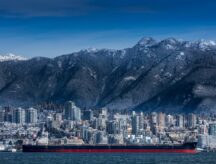British Columbia now issuing Provincial Attestation Letters for international students
British Columbia’s provincial attestation letter (PAL) system is effective as of today, March 4, 2024.
International students must submit a PAL with their study permit application to prove that they have been accepted by a Designated Learning Institution (DLI) within the limits of its allocation. The B.C. government says the provincial government issues PALs to institutions, who then issue the letters to the international applicant.
B.C. says it has been granted a total allocation of 83,000 undergraduate study permit applications from Immigration Refugees and Citizenship Canada (IRCC). Further, the province notes that “based on previous acceptance rates, the federal government expects this to result in approximately 50,000 approved study permit applications for 2024.”
Discover if You Are Eligible for Canadian Immigration
Comparatively, last year there were 97,000 study permit applications for undergraduate programs in B.C., resulting in approximately 60,000 approved study permits.
The province says that 53% of PALs will be for public post-secondary institutions and the remaining 47% will be for private institutions, representing 27% fewer study permit applications for private institutions than in 2023. B.C. notes the reduction is meant to counter “unsustainable growth.”
B.C.’s PAL system is the first to be released since IRCC introduced a cap on the number of study permits it would issue in 2024. Other provinces are expected to follow suit shortly to meet the March 31 deadline.
IRCC’s cap on study permit applications
On January 22, 2023, IRCC said it will now issue up to 360,000 new study permits in 2024, a 35% reduction over 2023 levels.
Study permit renewals are not affected by the cap, nor are master’s or doctoral degrees.
During the announcement, the department said study permits would be allocated to the provinces based on population. According to population data from Statistics Canada, British Columbia is Canada’s third most populous province at approximately 5.6 million people.
Alongside the cap, the department also announced changes to the eligibility criteria for Post Graduation Work Permits (PGWPs) as well as upcoming changes to Spousal Open Work Permits (SOWP). Mainly, the spouses or partners of international students pursuing an undergraduate degree will no longer be eligible for a SOWP. However, this has not yet been implemented.
“Unsustainable growth”
The implementation of the cap came after several remarks from Immigration Minister Marc Miller regarding the unsustainability of Canada’s international student program.
There were over one million active study permits in Canada in 2023, at a time when the country is coping with a shortage of affordable housing. As a result, many international students are living in poor conditions, or in some cases, experiencing homelessness.
The minister explained “there are, in provinces, the diploma equivalent of puppy mills that are just churning out diplomas, and this is not a legitimate student experience.”
Further, the minister said that due to the “permissive” DLI models in some provinces, international students were not being offered adequate support, despite paying significantly higher tuition fees than domestic students. According to IRCC, the cap will target bad actors within the system by shrinking their source of income.
Other changes to B.C.’s international student program
B.C. notes in its release that it expects the cap to have the biggest impact on private institutions, which typically have less oversight than public institutions. Further, earlier this year the province introduced its own suite of measures to combat the unsustainable growth of the provincial international student program.
For example, the province is pausing approvals for new post-secondary institutions seeking to enroll international students until February 2026. It says it will also “ensure private degree programs meet higher standards for approval, including higher assessment criteria for degree quality, demonstrated labour-market need for graduates, and appropriate resources and student supports.”
This is in addition to new minimum language requirements for students at private institutions, a measure aimed at ensuring that students are better prepared for life as a student in B.C.
- Do you need Canadian immigration assistance? Contact the Contact Cohen Immigration Law firm by completing our form
- Send us your feedback or your non-legal assistance questions by emailing us at media@canadavisa.com







